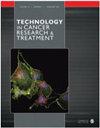作为诊断和监测肺癌的新型生物标记物,HBB 通过 ERK1/2 通路调节细胞增殖
IF 2.8
4区 医学
Q3 ONCOLOGY
引用次数: 0
摘要
目的:研究表明,血红蛋白 beta(HBB)不仅在血液疾病中起着重要作用,在恶性肿瘤中也是如此。本研究旨在探讨 HBB 在肺癌中的临床意义、诊断价值和生物学功能。方法:使用实时定量聚合酶链反应检测肺癌组织和血浆样本中 HBB 的表达,并分析其与临床病理特征的关系。构建接收者操作特征曲线(ROC)来评估HBB在肺癌中的诊断价值。使用细胞计数试剂盒-8分析了A549和SPCA1细胞的增殖情况,并通过Western印迹检测了蛋白质的表达。结果发现在肺癌组织和血浆样本中,HBB的表达均呈下调趋势。值得注意的是,与术前样本相比,术后样本的血浆 HBB 水平明显升高。在66例肺癌组织中,HBB水平与性别和肿瘤、结节、转移分期都有相关性。ROC曲线分析进一步证实了HBB表达在肺癌中的高诊断潜力。此外,在肺癌诊断中,HBB和癌胚抗原(CEA)的组合比单独使用HBB或CEA更有意义。敲除或过表达HBB可通过ERK1/2信号通路影响肺癌细胞的增殖。结论HBB可作为诊断和监测肺癌的新型生物标志物,通过ERK1/2途径调节细胞增殖,在肺癌的发生和发展过程中起着关键作用。本文章由计算机程序翻译,如有差异,请以英文原文为准。
HBB as a Novel Biomarker for the Diagnosis and Monitoring of Lung Cancer Regulates Cell Proliferation via ERK1/2 Pathway
Objective: Rece nt studies have revealed that hemoglobin beta (HBB) plays an important role not only in blood disorders but also in malignancies. The aim of this study is to investigate the clinical significance, diagnostic value, and biological function of HBB in lung cancer. Methods: HBB expression was examined in lung cancer tissues and plasma samples using quantitative real-time polymerase chain reaction, and its relationship with clinical pathological characteristics was analyzed. Receiver operating characteristic (ROC) curves were constructed to evaluate the diagnostic value of HBB in lung cancer. The proliferation of A549 and SPCA1 cells was analyzed using a cell counting kit-8 assay and protein expressions were detected by western blot. Results: The expressions of HBB were found to be down-regulated in both lung cancer tissues and plasma samples. Notably, plasma HBB levels were significantly elevated in postoperative samples when compared to their preoperative counterparts. Across 66 cases of lung cancer tissues, a correlation was observed between HBB levels and both gender and tumor, node, metastasis staging. ROC curve analysis further confirmed the high diagnostic potential of HBB expression in lung cancer. Moreover, the combination of HBB and carcinoembryonic antigen (CEA) had greater significance than HBB or CEA alone in the diagnosis of lung cancer. Knocking out or overexpressing HBB could affect lung cancer cell proliferation through the ERK1/2 signaling pathway. Conclusion: HBB can serve as a novel biomarker for the diagnosis and monitoring of lung cancer, regulating cell proliferation via the ERK1/2 pathway and playing a pivotal role in the oncogenesis and progression of the disease.
求助全文
通过发布文献求助,成功后即可免费获取论文全文。
去求助
来源期刊
CiteScore
4.40
自引率
0.00%
发文量
202
审稿时长
2 months
期刊介绍:
Technology in Cancer Research & Treatment (TCRT) is a JCR-ranked, broad-spectrum, open access, peer-reviewed publication whose aim is to provide researchers and clinicians with a platform to share and discuss developments in the prevention, diagnosis, treatment, and monitoring of cancer.

 求助内容:
求助内容: 应助结果提醒方式:
应助结果提醒方式:


